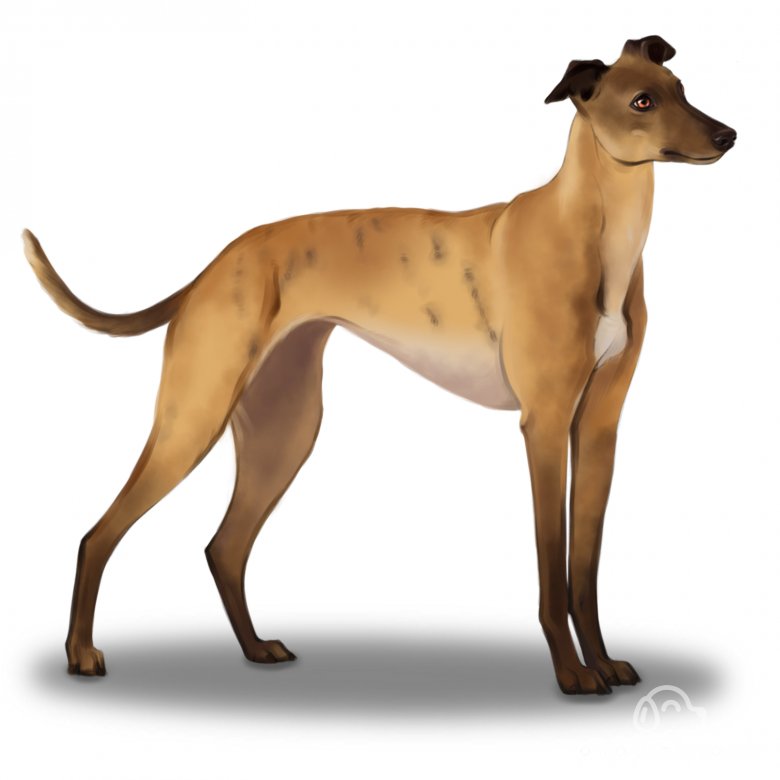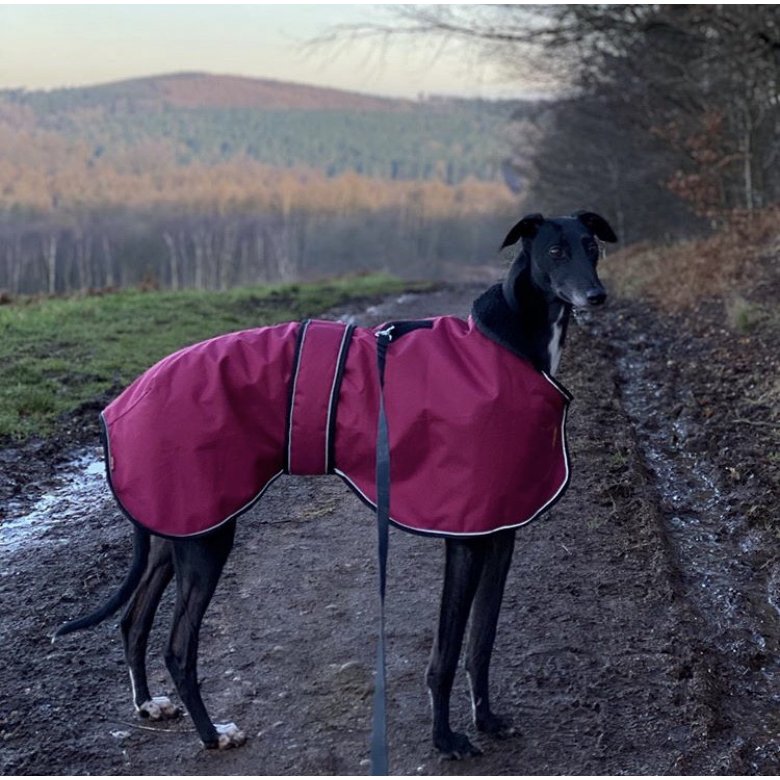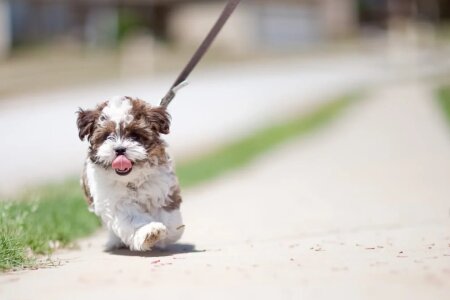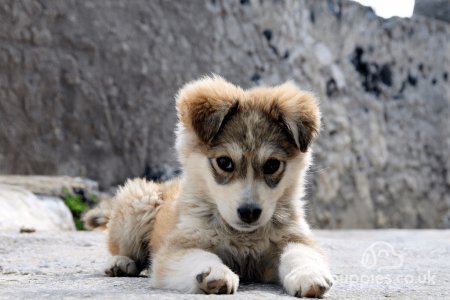Why Greyhounds are great
Greyhounds are iconic, elegant and athletic. Although they are the fastest of the dog breeds, they are actually very content with a quiet lifestyle. Greyhounds are large, low maintenance dogs that make a great addition to the family. Some highlights:
Loyal companions
Easy to train
Require minimal grooming
Quiet and adaptable
Things to consider when looking at Greyhounds for Sale
As with all dog breeds, there are a few considerations to make when deciding if a Greyhound is right for you. Some downsides to the Greyhound:
Very strong prey drive
Not ideal for first-time owners
Can’t be let off lead unless in a well-secured, high-fenced area
History of Greyhounds
The Greyhound has a long, rich history that began in North Africa and the Middle East. This ancient breed has been around for thousands of years, there are even early cave drawings of greyhounds tracing back 8,000 years. It’s not certain where the name ‘Greyhound’ comes from; some theories suggest that early greyhounds could’ve been mostly grey in colour and that’s what the name is in reference to, others say that it comes from Old English where “grei” means dog and “hundr” means hunter and a third theory is that it developed from the word Greekhound. Whatever the origins of the name, the Greyhound breed crossed over into Europe in the Dark Ages and they were highly respected for their hunting abilities. When Greyhounds arrived in Britain, they were a status symbol for a long time and were only owned by the royal and rich. In fact, from the 11-14th-century English law ensured Greyhounds were owned only by the noble and elite. Greyhounds are thought to have changed very little over the centuries. The dogs' speed and keen eyesight has allowed them to excel in coursing (chasing prey) and were later used in races too. Greyhounds were first recognised by the American Kennel Club in 1885 and today, the breed remains one of the more popular family pets.
Appearance
Greyhounds are streamlined and well-proportioned with a very athletic build. They have narrow heads, powerful jaws and small, rose-shaped ears. A greyhound is graceful in appearance, they have narrow waists and it is normal for them to appear slender.
How big is the Greyhound?
An adult female Greyhound stands at 68 – 71cm at the withers and males are slightly larger at 71-76cm.
How heavy is a Greyhound?
A fully-grown greyhound weighs between 27 – 40kg.
What Colour is the Greyhound?
According to Kennel Club registration, Greyhounds can come in a wide variety of colours including; black, brindle, blue, red, fawn or fallow, or a combination of these colours with white. In total, there are 18 official colours.
Temperament
Greyhounds are very friendly and have had aggression almost entirely bred out of them. They are intelligent and independent but are also sensitive and affectionate. A greyhound is an excellent family dog but can be stubborn and destructive so are not recommended for first-time owners.
Do Greyhounds make good guard dogs?
No, Greyhounds are not natural guard dogs. They are rarely aggressive and prefer to keep their distance, although they are likely to alert their owner to the presence of strangers.
Do Greyhounds bark a lot?
No, generally Greyhounds are quiet dogs but they sometimes go through periods of howling. If you leave your Greyhound at home alone for a long period of time they are more likely to bark as a way of demonstrating that they are not happy.
Are Greyhounds easy to train?
Yes, as intelligent dogs that are eager to please Greyhounds are easy to train. They respond well to positive reinforcement. The one thing to be careful of is their strong prey drive and desire to chase if your Greyhound begins to chase something they will likely ignore the recall command as they will be too focussed on chasing.
Are Greyhounds playful?
Greyhounds are playful and enjoy participating in playful interactions with their family. They also love to chase and let off steam by lure coursing (chasing lures).
Are Greyhounds good with children?
Greyhounds tend to be on their best behaviour when around children, they are gentle and affectionate. If a Greyhound has not been well socialised they may feel nervous around children so early socialisation is essential.
Are Greyhounds good with other pets?
Well socialised Greyhounds are great with other dogs but extreme care needs to be taken around other animals. If a Greyhound has grown up with cats then they are okay but never leave a Greyhound around smaller animals because their high prey drive can result in them chasing the smaller animals.
Can I leave a Greyhound Alone?
Greyhounds do not like to be left alone for long periods of time, they form strong bonds with their families and are best suited to being in households where someone is always at home with them.
Do Greyhounds like water?
Some Greyhounds love swimming while others are not interested. The breed is not built for swimming so keep a close eye on your dog when they are in the water.
Health
How long do Greyhounds live?
The average lifespan is around 9 – 11 years for a Greyhound.
How much exercise does a Greyhound need?
Although Greyhounds are very athletic, they are built for speed, not stamina. They require at least one hour of exercise each day, if you have a secure back garden your Greyhound would love to spend time running and playing outside too. It’s better to keep Greyhounds on a lead when out in public places as they will likely take off after smaller animals.
What are Greyhounds Common health issues?
Greyhounds are quite delicate and are prone to injuries, particularly leg injuries. Other health issues include:
Bloat
Osteosarcoma
Congenital deafness
Neuropathy
Spinal injuries
Anaesthesia sensitivity
Care
How much space do I need for a Greyhound?
Greyhounds are happy in homes of any size as long as they have a secure, fenced outside the area to enjoy.
What should I feed my Greyhound?
When you bring your Greyhound puppy home it is important to follow the feeding schedule provided by the breeder as this prevents any stomach upsets. Any changes you make to your dog’s diet should be made gradually. Greyhounds are prone to bloat so they should not be fed immediately before or after exercise. As a rough guide, an adult greyhound of 35kg can be fed 340 – 440g of high-quality dog food a day.
How much grooming do Greyhounds need?
The short, close coat of a Greyhound means they are very low maintenance when it comes to grooming. A quick brush every now and then is all they need.
Do Greyhounds shed?
Greyhounds do shed at a low to medium rate. The amount of shedding seems to vary depending on the individual dog.
Average costs
How much does it cost to keep a Greyhound?
As a rough guide in pricing: Cost to buy: roughly £600 for a well-bred Greyhound puppy Other costs (Vet, Food etc): £60 per month
Specific Buying Guide
You can read our general buying guide here (/advice-on-buying-a-puppy/), with the most important thing being going to view your Greyhound Puppy, seeing it with its mother, and checking the quality of the breeder. More specifically, here is some Greyhound puppy buying advice:
Greyhounds are very popular within the UK so it is important to choose reputable breeders as there are amateur breeders with a focus on making profits who breed their dogs too often and don’t provide the necessary care to the parents or puppies.
If you are looking for your Greyhound puppy online, do not pay a deposit or the amount requested to the seller unless you have met in person and know they are a genuine breeder. Beware of scammers and don’t rush transactions.
Other reading, Adopting Greyhound Puppies and Rescue Organisations
A big thank you to the following sources who helped to shape this article: https://www.akc.org/dog-breeds/greyhound/ https://www.greyhoundtrust.org.uk/ https://www.thekennelclub.org.uk/services/public/breed/display.aspx?id=1019















